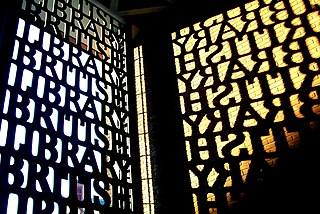Over the past six months, a Wikimedia UK trustee led two Wikipedia-related projects, Monmouthpedia and Gibraltarpedia, in a way that seemed to some observers to blur his roles as a Wikimedia UK trustee, a paid consultant for the projects’ government partners, and an editor of the English Wikipedia. This raised questions in the Wikimedia community about whether a trustee was able to balance appropriately the interests of his clients with his responsibilities to Wikimedia UK, the values and editorial policies of Wikipedia, and whether any conflict of interest that arose as a result was effectively managed.
To better understand the facts and details of these allegations and to ensure that governance arrangements commensurate with the standing of the Wikimedia Foundation, Wikimedia UK and the worldwide Wikimedia movement, Wikimedia UK’s trustees and the Wikimedia Foundation will jointly appoint an independent expert advisor to objectively review both Wikimedia UK’s governance arrangements and its handling of the conflict of interest.
The review will consider Wikimedia UK’s current governance arrangements, current internal policies, such as the Trustee Code of Conduct, the Nolan Committee Requirements, the Conflicts of Interest policy, the Representing Wikimedia UK policy, any other relevant policies of Wikimedia UK, and best ethical practices.
Considering specifically the conflict of interest, we will ask the expert advisor to identify any gaps between how the conflict of interest situation within Wikimedia UK would ideally have been handled and how it actually was handled, and to recommend how situations such as this should be managed in the future. The review will also touch on any activities that may have blurred work as a paid consultant with work as a Wikipedia editor, but recommendations for changes to Wikipedia’s policies and practices will be outside its scope: we leave the broader topic of reviewing Wikipedia’s editorial policies to the community.
Once the review is completed, it will be reviewed by both the Wikimedia Foundation and Wikimedia UK and then published.
At the same time, Wikimedia UK has agreed with the Wikimedia Foundation that the Foundation shall process payments for the United Kingdom during this year’s fundraiser.
Wikimedia UK has the benefit of legal and professional advice to assist in understanding and handling conflicts of interests. The goal of both organizations in carrying out this review, and Wikimedia UK’s in deciding to absent itself from the 2012 fundraising campaign as a payment processor, is to demonstrate that we mutually recognize the importance of handling conflicts well beyond simple requirements of the law. We understand our responsibilities to you: the members of Wikimedia UK and the Wikimedia movement, its donors, editors, and readers.












